UNDP and EU support a social enterprise in Belarus to boost women's employment and improve care services for people with disabilities.
Championing an inclusive cleaning business
February 15, 2023
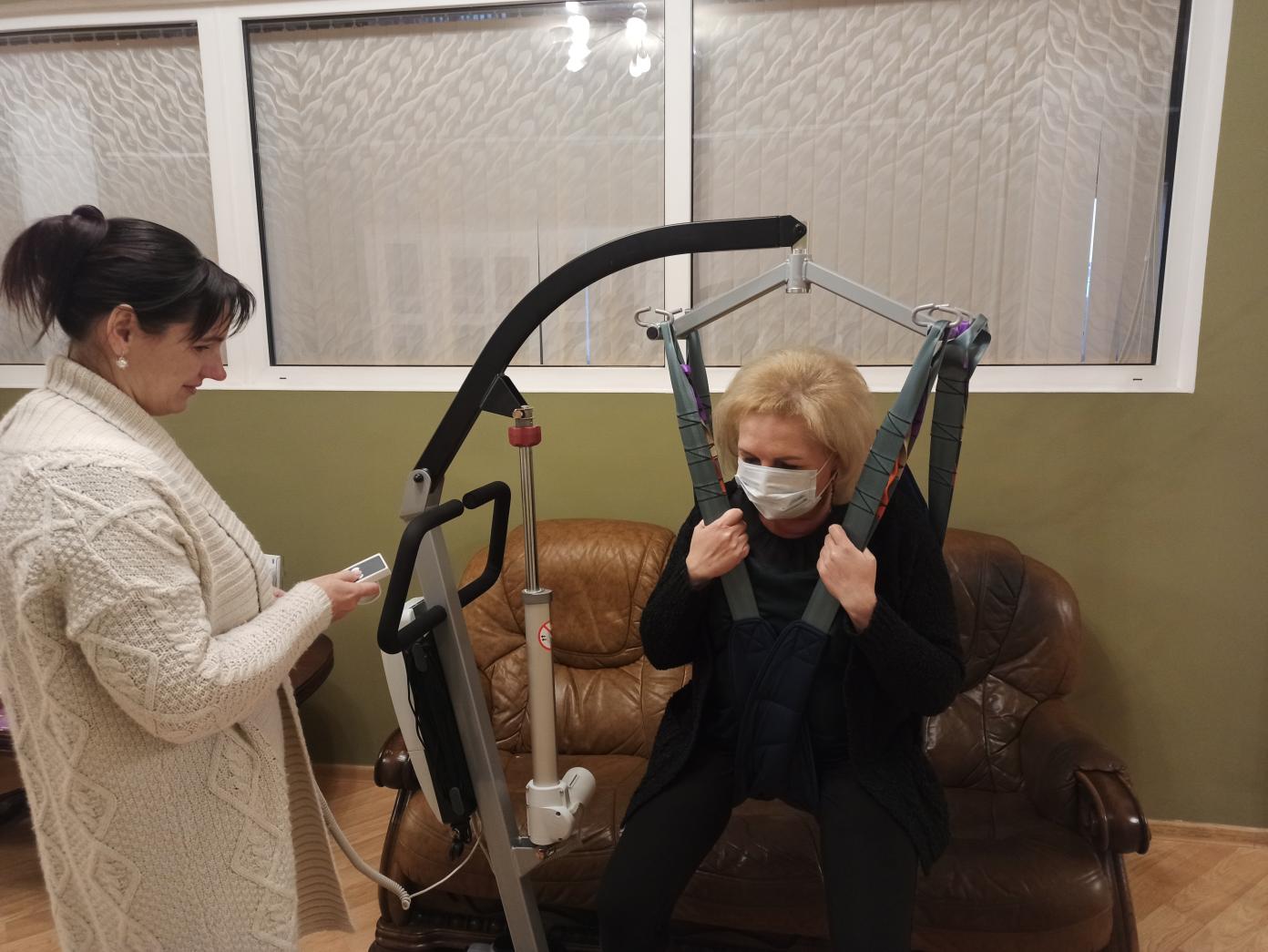
A small enterprise in Lida, Belarus, gives trainings in entrepreneurship and employs women, who experience difficulties competing in the labour market. The company also provides cleaning services along with hygiene care for people with disabilities, limited mobility, elderly people.
Business Training
“About a hundred women came to the first forum of women entrepreneurs – the event organized by our team,” recalls Anna Sergievich, a psychologist from the Lida territorial social service centre and participant of the initiative. “‘Lack of knowledge, ‘I don't know, I'm afraid,’ ‘have no sufficient financial resources’ – are the most common barriers mentioned by women when they are asked about the possibility to start their own business. Later these answers were used as a basis for developing a training course on women entrepreneurship.”
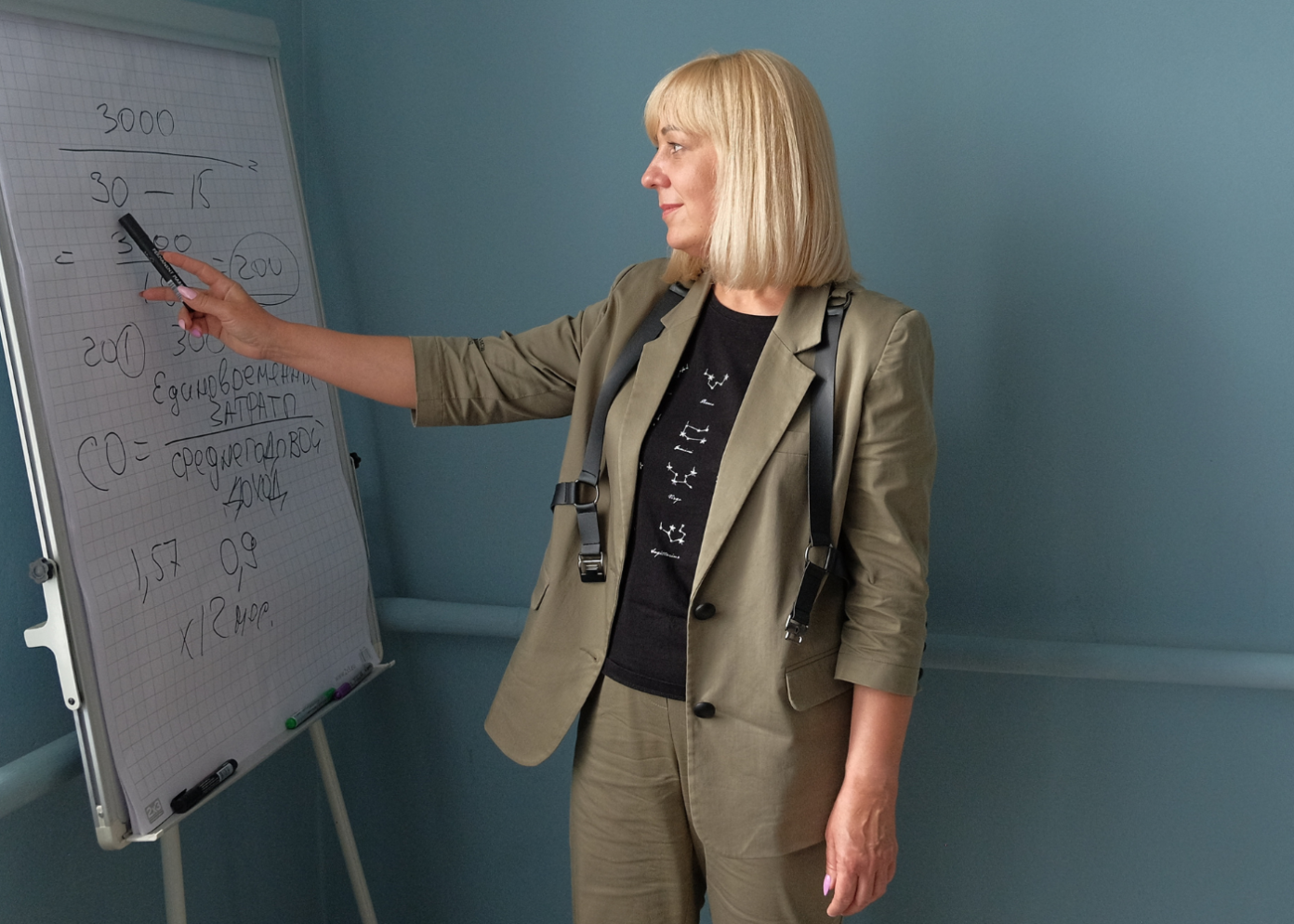
Anna Sergievich, psychologist at the Lida territorial social service centre and participant of the initiative.
20 motivated women spent four months training in a business “bootcamp” hosted by the "Social Enterprise Providing Cleaning Services and Hygiene Care to Persons with Low Mobility” initiative in a partnership with educators from the Lida College. The women came from all over the district to learn the basics of entrepreneurship and business operations along with some important professional skills entrepreneurs have to master to advance in business. After the training women who want to get their first work experience are invited to get it through employment with the company.
"I wouldn’t go in for it alone"
The women acknowledge that during the training they became united as a family and are happy to meet and share ideas.
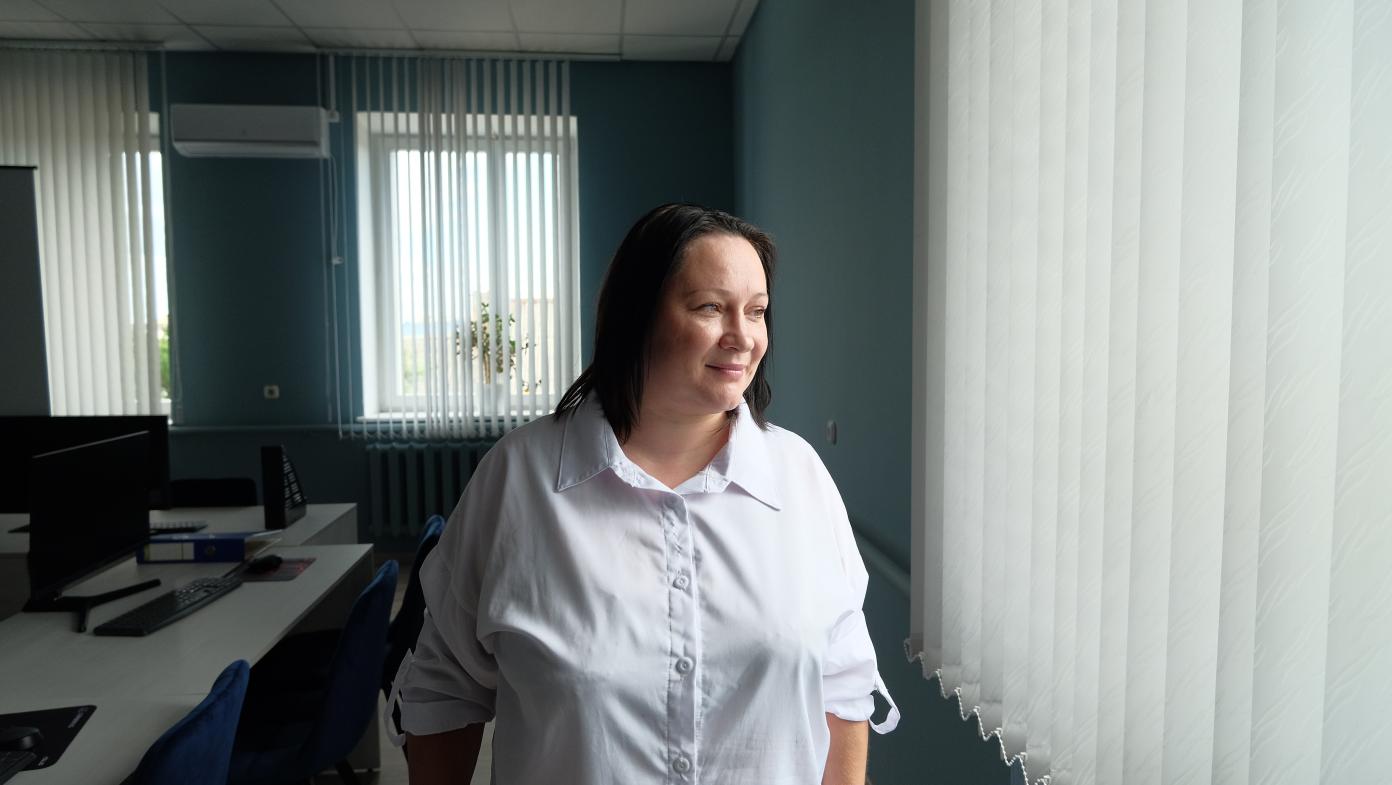
Alesia Pantiukhova, participant of the initiative.
“I am very happy to join the initiative. Every part of the training was very useful for me. I really enjoyed learning the financial literacy and became inspired by group work and the teachers’ support. I would hardly ever consider going into business if I had to do it alone”.
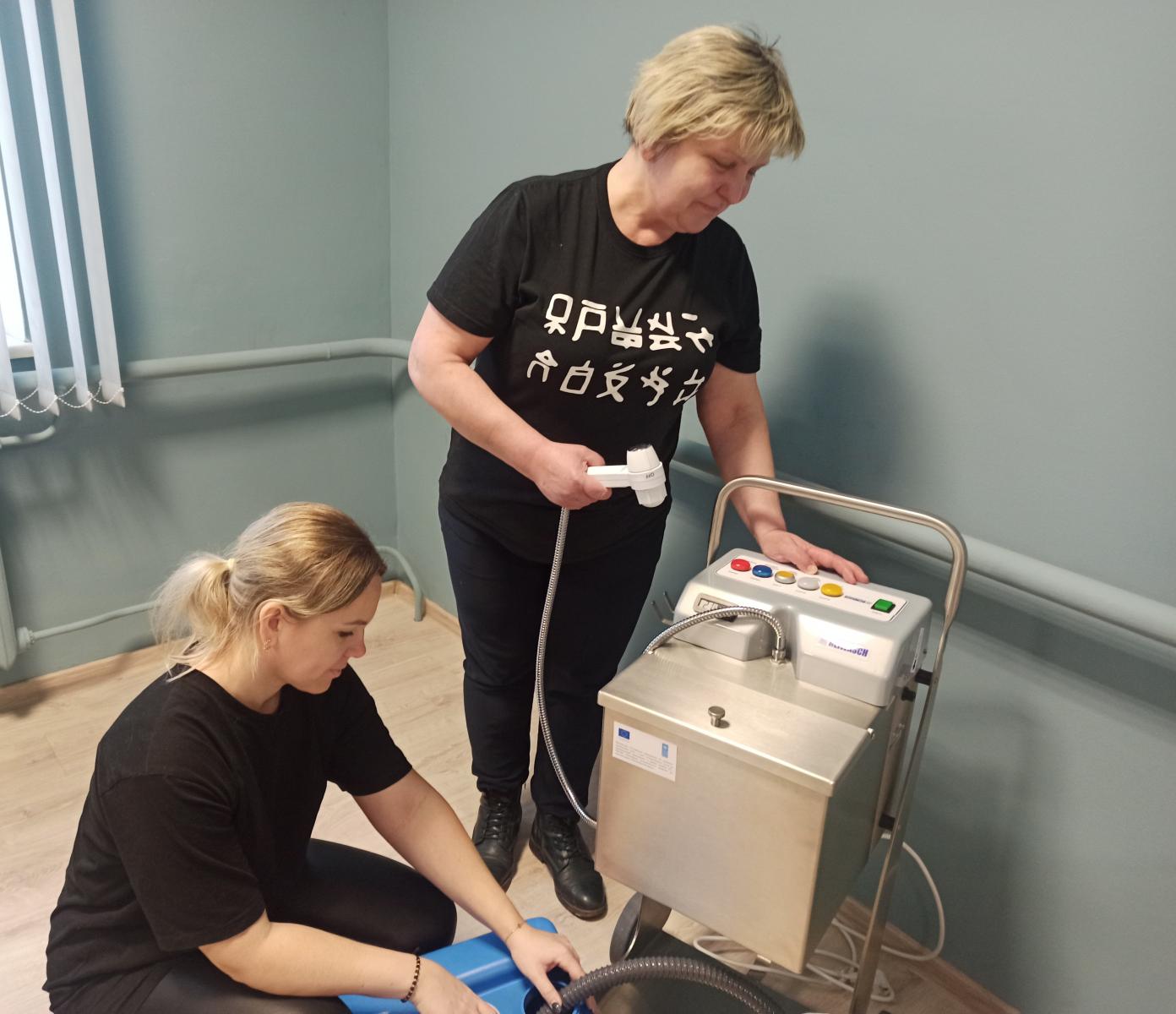
Women who want to work in the company were invited to take a work-based learning in mobility impairments.
Where there is a demand - there is a supply
There are about 6,000 people with disabilities in the district and more than 200 of them use a wheelchair for mobility. Over 100 people are discharged annually from the district hospital and need support due to temporary limited mobility. Additionally, there are elderly people with decreased self-care ability. Despite high demand, there were no specialized companies on the local market who provided care services.
Women who want to work in the company were invited to take a work-based learning in mobility impairments. For several months, they focused on specifics of care for people with limited mobility, learnt fundamental principles of psychological interaction, practised related assistive technology and first aid skills. The women also mastered kinaesthetic - a cutting edge system of care for persons with impaired motor activity that helps preserve and develop one’s motor components and find individual approaches for every person.
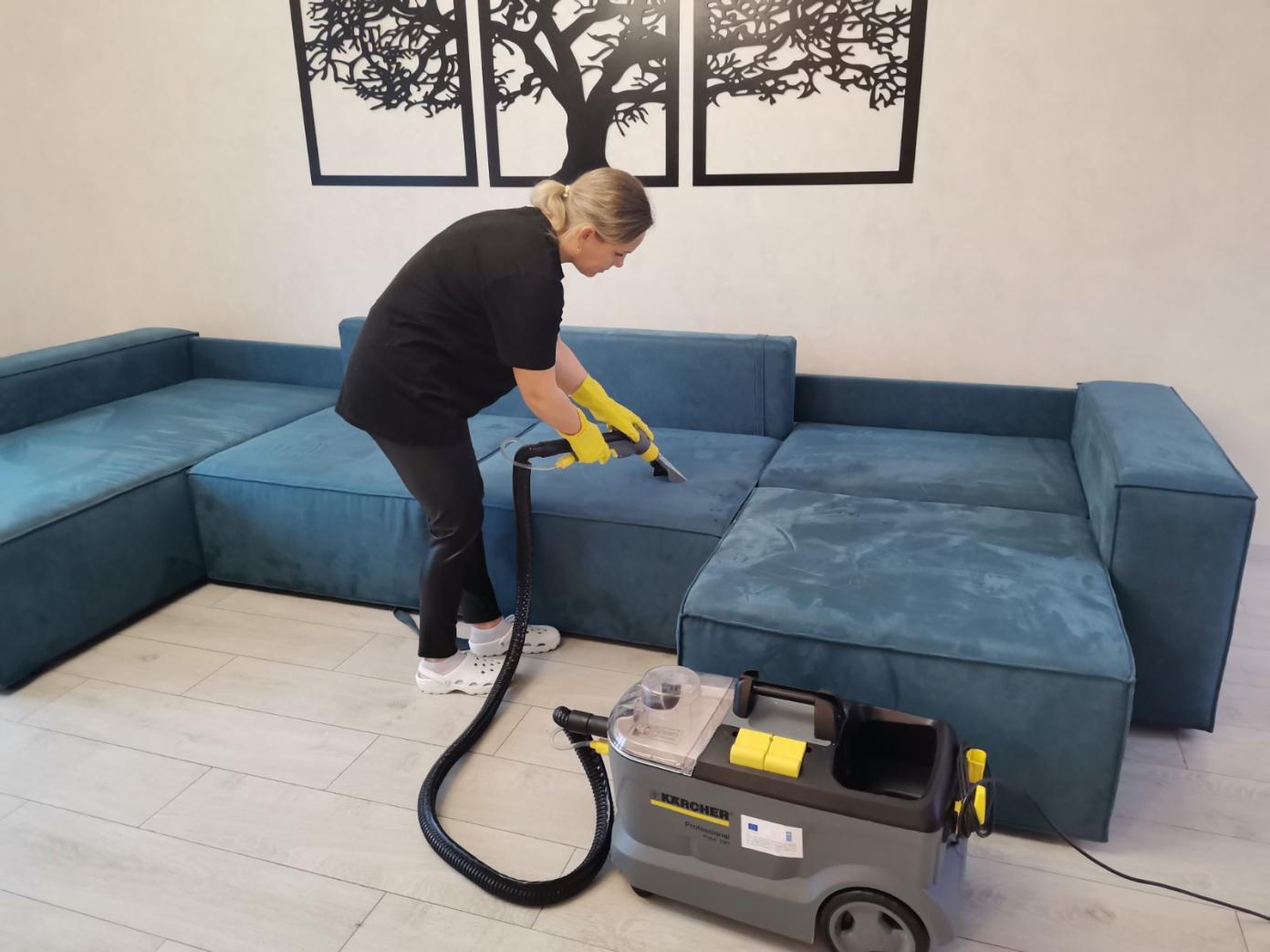
Support and care
Anna Sergievich is especially proud of the newest care equipment procured with the financial support from the “Support to Economic Development at the Local Level in the Republic of Belarus” project, implemented by UNDP in partnership with the Ministry of Economy of the Republic of Belarus and funded by the European Union.
“We purchased a modern electric lift that can be used even in small apartments. It allows to lift and move a person to a wheelchair or bathtub. Such equipment is critical for many families with adult bedridden persons,” explains Anna.
“Besides, we now have a portable shower system. This equipment ensures comfort for immobile clients and make the work easier for women providing caring services," Anna describes the technological improvements.
The initiative also purchased vacuum cleaners, steam generators and professional household chemicals for various needs to deliver high-quality cleaning services for apartments and houses.
“When joining the initiative women don’t have to make any financial investments. This is very important because women often cannot start their own business due to lack of money,” says Anna.
The enterprise addresses both social and economic issues locally: people get desired service, while others provide it growing their potential and gaining profit.
Socially important initiatives are crucial drivers for local development as they help find solutions to address social challengers and improve well-being of local communities. They are instrumental for implementation of the national programs "Social Protection for 2021-2025” and "Labour Market and Employment Promotion for 2021-2025.” These initiatives help vulnerable populations integrate into social and economic fabrics of local development through encouraging entrepreneurship, offering new jobs and business knowledge, faster growth and increasing competitiveness of the workforce. For people with disabilities and elderly people, the initiatives improve accessibility and quality of medical and rehabilitation services, facilitate social adaptation and inclusiveness.
The socially important initiative "Social Enterprise Providing Cleaning Services and Hygiene Care to Persons with Low Mobility” received support as a part of the “Support to Economic Development at the Local Level in the Republic of Belarus” project, implemented by UNDP in partnership with the Ministry of Economy of the Republic of Belarus with funding from the European Union.
In total, the project supported 40 socially important initiatives in 12 districts of Belarus.

 Locations
Locations